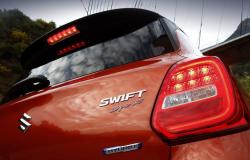The CEO of Modo, the banks’ wallet, had referred in harsh terms to Mercado Libre for the obstacles to complying with the Central Bank rule that requires accepting interoperable payments. “They are delaying maneuvers, Mercado Pago asks for something totally unreasonable, it makes a request that is unacceptable for the rest of the system,” he explained. Rafael Soto in an interview last Friday.
From the company he founded Marcos Galperin They maintain that the investment to install the QR payment system throughout the country cost USD 30 million five years ago. And those players who want to use it, in this case other wallets other than Mercado Pago, must pay to access the service.
“That argument is totally unreasonable. There are many companies that invested and continue to do so to install their own terminal park. They charge the businesses, which are the ones that receive the service. It is everyone’s business to be able to accept more players who can pay through them,” added Soto, who also gives a practical example: “Today any payment terminal accepts Visa, Mastercard or any other card. There is no longer having one for each brand as it was many years ago. The same should happen with QR payments, because what it is about is making life easier for users.”
This afternoon, Modo denounced Mercado Libre before the National Commission for the Defense of Competition (CNDC) due to exclusionary anti-competitive behavior. The presentation alleges an abuse of its dominant position “to the detriment of multiple market actors, including competitors, businesses and consumers.”
In the document presented, he established the wallet’s position in at least 5 points:
Refusal to incorporate competing digital wallets: Mercado Libre prevents the use of digital wallets competing with Mercado Pago in its marketplacedenying access to those who request to be payment initiators on the platform.
- Refusal to incorporate competing aggregators: Mercado Libre does not allow other aggregators and acceptors competing with Mercado Pago to provide collection services on its marketplacetying merchant sales to their own payment services.
- Obligation to open an exclusive account in Mercado Pago: Mercado Libre obliges buyers and sellers of the marketplace to have an account in Mercado Pago.
- Refusal to the interoperability of the QR and payment gateway: Mercado Libre prevents competing Mercado Pago wallets from paying with their QR or payment gateway (e-commerce).
- Refusal to the interoperability of the Mercado Pago digital wallet: The company prevents Mercado Pago users from initiating card payments using competing acquirers and aggregators.
In the aforementioned interview, Soto highlighted that Modo’s spirit is to seek openness, interoperability and competition in the payments market. “This market is an ecosystem, where there are a lot of participants. The value is that we all speak the same language. Let everyone accept a payment method and it develops, we all win,” he said.
After a series of postponements, the Central Government forced payment operations through a QR to be “fully interoperable” on April 30. This means adding to the current functions the ability to pay with a credit card from any wallet. This is what is blocked today, because at the moment Mercado Pago only allows credit card payments from your own wallet in its QR. The rest of the wallets on the market can only pay with the “account balance” function, that is, making an immediate transfer from the buyer’s account to that of the merchant.
“The issue is when the roles begin to mix. Mercado Pago is a wallet, but on the other hand it has an entire acquiring business. By having vertical integration, priorities begin to mix,” explained the CEO of Modo.
“We were always surprised that the Central Office had to issue a standard mandating interoperability. We speak to all acquirers and they are all happy to accept a new wallet. It beats cash and generates more acceptance. It’s like issuing a rule that forces supermarkets to sell potato chips in a package,” Soto concluded.
The executive also highlights the key role that payment methods have for financial inclusion and ultimately for increasing credit volume. “To the extent that we all collaborate, we will win the battle against cash. It is money that is transacted through financial circuits, which can be intermediated. This will allow financing to grow, taking into account that the credit ratio in relation to GDP is among the lowest in the world,” the executive concluded.






